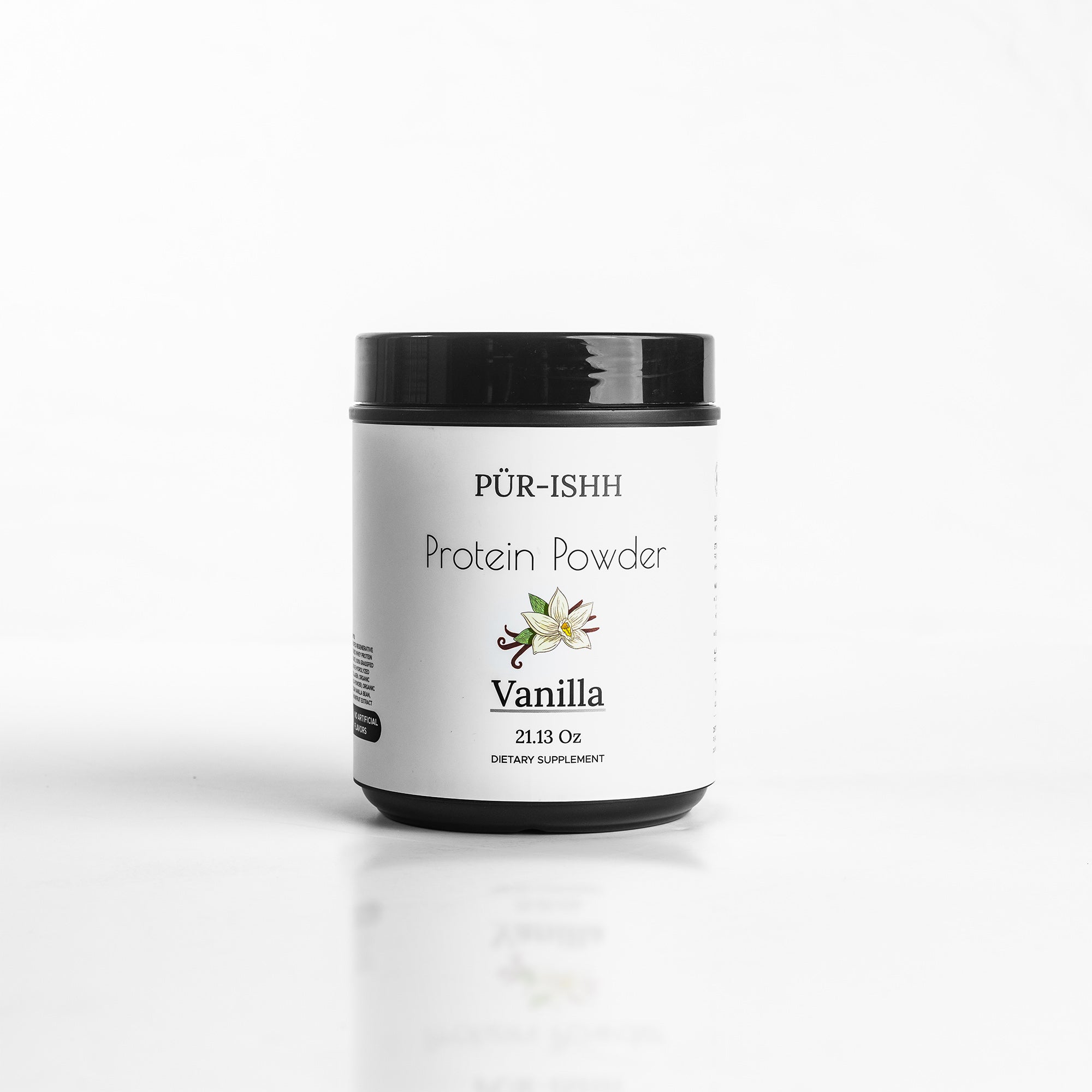The protein powder market feels overwhelming, doesn't it? Walk into any supplement store or browse online, and you'll find hundreds of options, each claiming to be the ultimate solution for your fitness and health goals. With so many choices and conflicting information, how do you make sense of it all?
The truth is, not all protein powders are created equal, not even close. Behind the flashy labels and bold marketing claims lie significant differences in sourcing, processing, ingredient quality, and overall effectiveness. Understanding these differences is crucial for making an informed choice that truly supports your health and goals.
Let's cut through the marketing noise and examine how different approaches to protein supplementation stack up, with a particular focus on what makes some brands genuinely superior to others.
The Current Protein Powder Landscape: What You're Really Choosing Between
The protein supplement industry has exploded over the past decade, creating more options than ever before. But this expansion hasn't necessarily meant better quality. In fact, increased competition has often led to cost-cutting measures that compromise the very thing you're paying for: effective, clean protein.
Mass-Market Protein Powders: The Race to the Bottom
Most protein powders you'll find at big-box stores, pharmacies, and discount supplement retailers fall into this category. These products prioritize shelf space and profit margins over quality, resulting in formulations that look impressive on paper but fall short in real-world application.
These mass-market options typically use the cheapest protein sources available, often from conventionally-raised animals treated with hormones and antibiotics. The protein is frequently processed using high-heat methods that denature amino acids and reduce bioavailability.
To mask inferior taste and texture, manufacturers load these products with artificial flavors, synthetic sweeteners, and texture-enhancing chemicals. The ingredient lists read like chemistry experiments, filled with compounds that have nothing to do with protein and everything to do with shelf appeal.
Premium-Positioned Products: Marketing Over Substance
The middle tier of the protein powder market consists of products positioned as "premium" or "advanced" but often deliver only marginally better quality than mass-market alternatives. These brands invest heavily in marketing, packaging, and endorsements while making minimal improvements to their actual formulations.
These products might use slightly better protein sources or include additional ingredients like enzymes or probiotics, but they often retain the fundamental flaws of artificial additives, questionable processing methods, and profit-driven compromises.
Truly Premium Protein: Where Quality Meets Purpose
At the top tier, you'll find protein powders that prioritize quality above all else. These products use superior sourcing, gentle processing methods, and minimal ingredient lists focused on delivering pure, effective protein.
This is where brands like Purishh position themselves, not through flashy marketing or gimmicky additions, but through an uncompromising commitment to quality at every step of the process.
Breaking Down the Key Comparison Factors
When comparing protein powders, several critical factors determine whether you're getting genuine value or just paying for marketing. Let's examine each area where quality differences become apparent.
Source Quality: The Foundation of Everything
The quality of your protein powder starts with the animals it comes from. This fundamental difference affects everything from amino acid profiles to digestibility to potential contaminant exposure.
Conventional Sources: Most protein powders use protein from conventionally-raised animals that live in confined conditions, eat grain-based diets supplemented with growth hormones and antibiotics. These practices create protein with inferior nutritional profiles and potential chemical residues.
Grass-Fed, Pasture-Raised Sources: Premium proteins like Purishh come from animals that live as nature intended, grazing on pastures, eating their natural diet, without hormone or antibiotic interventions. This approach produces protein with superior amino acid profiles, higher levels of beneficial omega-3 fatty acids, and no unwanted chemical residues.
The difference isn't subtle. Grass-fed sources provide measurably different nutritional profiles that support better health outcomes and more effective protein utilization.
Processing Methods: Preserving What Nature Provided
How protein is extracted and processed dramatically affects its final quality and digestibility. This is where many brands make critical compromises that undermine their products' effectiveness.
High-Heat Processing: Most commercial protein powders use high-temperature processing to speed production and reduce costs. This approach denatures proteins, reduces bioavailability, and can create harmful compounds through excessive heating.
Chemical Extraction: Many manufacturers use chemical solvents and harsh extraction methods to maximize yield and reduce costs. These processes can leave chemical residues while damaging the protein's natural structure.
Gentle, Low-Temperature Processing: Premium brands like Purishh use careful, low-temperature methods that preserve the protein's natural structure and complete amino acid profile. This approach maintains bioavailability while avoiding the creation of harmful compounds.
Ingredient Philosophy: Addition by Subtraction
The ingredient list reveals more about a protein powder's quality than almost any other factor. What's included, and what's left out, tells the real story of a brand's priorities.
Artificial Enhancement Approach: Most protein powders include long lists of artificial flavors, synthetic sweeteners, chemical preservatives, and texture enhancers. These ingredients serve the manufacturer's needs for shelf stability and mass appeal but often work against your health goals.
Clean, Minimal Approach: Quality-focused brands take the opposite approach, using minimal ingredients focused on effectiveness rather than shelf appeal. When additional ingredients are included, they're natural and purposeful.
Purishh exemplifies this clean approach. Their protein powders contain only what's necessary for effectiveness, without the chemical additives that compromise health and digestibility.
How Major Brands Compare to Purishh
Let's examine how different categories of protein powder brands stack up against Purishh's approach across key quality factors.
Popular Mass-Market Brands vs. Purishh
Most grocery store and pharmacy protein powders prioritize cost and shelf appeal over quality. Here's how they typically compare:
Sourcing: Mass-market brands usually source from conventional dairy operations with no transparency about animal treatment or feed quality. Purishh sources exclusively from grass-fed, pasture-raised animals, providing superior nutritional profiles and eliminating hormone/antibiotic residues.
Processing: Commercial brands often use high-heat processing and chemical extraction to maximize yield and reduce costs. Purishh uses gentle, low-temperature processing that preserves protein integrity and bioavailability.
Ingredients: Popular brands typically include artificial flavors, synthetic sweeteners (aspartame, sucralose), artificial colors, and multiple preservatives. Purishh maintains clean ingredient lists with natural flavoring and no artificial additives.
Price vs. Value: While mass-market options may seem cheaper per serving, their inferior digestibility and absorption mean less actual protein utilization per dollar spent.
Sports Nutrition Brands vs. Purishh
Brands marketed specifically to athletes and fitness enthusiasts often emphasize performance benefits but may still compromise on ingredient quality.
Formulation Complexity: Sports brands often include multiple protein sources, added amino acids, digestive enzymes, and performance enhancers. While this might seem beneficial, complex formulations can mask inferior base ingredients and create digestive challenges.
Artificial Enhancement: These brands frequently use artificial sweeteners, colors, and flavors to create appealing taste profiles that mask protein quality issues.
Marketing Focus: Heavy emphasis on endorsements, performance claims, and complex formulations often diverts attention from fundamental ingredient quality.
Purishh's approach focuses on perfecting the fundamentals, superior sourcing, gentle processing, and clean ingredients, rather than adding complexity to mask quality issues.
"Natural" and "Organic" Brands vs. Purishh
Some brands position themselves as natural or organic alternatives to conventional options, but these labels don't always guarantee superior quality.
Certification vs. Quality: Organic certification ensures certain standards but doesn't guarantee optimal sourcing, processing methods, or formulation approaches. Some organic proteins still use high-heat processing or include natural but unnecessary additives.
Premium Pricing Without Premium Quality: Many natural brands charge premium prices while delivering only marginally better quality than conventional alternatives.
Incomplete Transparency: Some brands use terms like "natural" or "clean" without providing detailed information about sourcing, processing methods, or specific quality standards.
Purishh goes beyond certification labels to ensure actual quality through verifiable sourcing standards, gentle processing methods, and transparent practices.
The Digestibility Factor: Where Many Brands Fall Short
Digestibility represents one of the most critical, and often overlooked, factors in protein powder quality. Even the most impressive amino acid profile means nothing if your body can't effectively digest and absorb the protein.
Common Digestibility Problems
Many protein powders cause digestive discomfort, bloating, or gastrointestinal upset. These issues typically result from several factors:
Denatured Proteins: High-heat processing can alter protein structure, making it harder for your digestive system to break down effectively.
Artificial Additives: Synthetic sweeteners, preservatives, and chemical additives can disrupt gut bacteria and interfere with normal digestion.
Poor Sourcing: Protein from animals treated with antibiotics and hormones can contain residues that affect digestive health and gut microbiome balance.
Lactose and Contaminants: Lower-quality processing may leave higher levels of lactose and other compounds that cause digestive issues in sensitive individuals.
Purishh's Digestibility Advantage
Purishh's approach addresses each of these common problems:
Gentle Processing: Low-temperature methods preserve natural protein structure, making it more recognizable and digestible for your system.
Clean Ingredients: Minimal, natural ingredients reduce the likelihood of digestive irritation or interference.
Superior Sourcing: Grass-fed, hormone-free protein sources eliminate potential contaminants that might affect digestion.
Quality Control: Careful processing removes irritating compounds while preserving beneficial elements.
Users consistently report better digestive comfort with Purishh compared to other protein powders they've tried, often noting the absence of bloating, gas, or other digestive issues.
Taste, Mixability, and User Experience
While quality should be the primary concern, practical factors like taste and mixability significantly affect long-term compliance and satisfaction with protein supplementation.
The Artificial Flavor Trap
Most protein powders rely on artificial flavors and synthetic sweeteners to create appealing taste profiles. While these might taste acceptable initially, many users report flavor fatigue or growing sensitivity to artificial additives over time.
Artificial sweeteners like sucralose, aspartame, and acesulfame potassium can also have negative health effects and may interfere with blood sugar regulation and gut health.
Purishh's Natural Approach
Purishh achieves appealing flavor profiles through natural means:
Quality Base: Starting with superior protein sources means less need to mask off-flavors that result from poor-quality ingredients.
Natural Flavoring: Using natural flavors and sweeteners creates taste profiles that remain appealing over time without artificial aftertastes.
Chocolate and Vanilla Options: Classic flavors that work well in various applications, from simple protein shakes to complex smoothie recipes.
Mixability and Texture
Protein powder that clumps, creates foam, or leaves gritty residue makes for an unpleasant experience that can derail consistent supplementation.
Superior processing methods and quality ingredients typically result in better mixability and smoother texture. Purishh's careful processing creates protein powder that mixes easily and creates smooth, pleasant textures in various applications.
Value Analysis: Understanding True Cost
Protein powder pricing can be misleading when you focus solely on cost per serving rather than cost per effective serving or overall value proposition.
Hidden Costs of Low-Quality Protein
Cheaper protein powders often represent poor value when you consider:
Lower Digestibility: Poor absorption means you need more servings to achieve the same effective protein intake.
Digestive Issues: Gastrointestinal problems can interrupt supplementation routines and require additional remedies.
Health Compromises: Artificial additives and poor-quality ingredients may work against your long-term health goals.
Replacement Costs: Unsatisfactory products often end up abandoned, requiring new purchases.
Purishh's Value Proposition
Higher-quality protein like Purishh often provides superior value through:
Enhanced Bioavailability: Better absorption means more effective protein utilization per serving.
Digestive Comfort: Consistent, comfortable digestion supports regular supplementation routines.
Health Support: Clean ingredients and superior sourcing align with rather than compromise health goals.
Satisfaction and Consistency: Quality that meets expectations reduces waste and supports long-term supplementation success.
Special Dietary Considerations
Different dietary approaches and restrictions create additional comparison factors that affect protein powder suitability.
Keto-Friendly Options
Ketogenic dieters need protein powders that are truly low-carb and don't interfere with ketosis. Many protein powders contain hidden carbohydrates from added sugars, fillers, or processing aids.
Purishh's formulation is genuinely keto-friendly, providing 26 grams of protein with minimal carbohydrates and no added sugars. The clean ingredient list means no hidden carbs that might disrupt ketosis.
Gluten-Free Needs
While most protein powders don't contain gluten directly, cross-contamination during processing or the inclusion of gluten-containing additives can create problems for sensitive individuals.
Purishh is certified gluten-free, ensuring safe consumption for those with celiac disease or gluten sensitivity.
Clean Eating Approaches
People following clean eating principles need protein powders that align with their commitment to whole, unprocessed foods and minimal artificial ingredients.
Purishh's minimal ingredient approach and natural sourcing make it compatible with clean eating philosophies, providing effective supplementation without compromising dietary principles.
Making Your Comparison: Key Questions to Ask
When evaluating protein powders, these questions help cut through marketing claims to understand actual quality differences:
About Sourcing:
- Are the animals grass-fed and pasture-raised?
- Are hormones and antibiotics avoided?
- Is sourcing information transparently available?
About Processing:
- Are gentle, low-temperature methods used?
- Is the complete amino acid profile preserved?
- Are chemical solvents and harsh extraction methods avoided?
About Ingredients:
- Is the ingredient list minimal and clean?
- Are artificial additives avoided?
- Are any additional ingredients natural and purposeful?
About Testing:
- Is third-party testing conducted?
- Are heavy metals and contaminants screened?
- Are results available for review?
About Company Philosophy:
- Does the company prioritize quality over profit margins?
- Are they transparent about their practices?
- Do they provide detailed information about their approach?
The Purishh Standard: Setting the Bar Higher
Throughout this comparison, Purishh consistently represents what protein supplementation should be: focused on quality, transparency, and effectiveness rather than marketing gimmicks or cost-cutting compromises.
Uncompromising Quality Standards
Purishh's approach demonstrates that exceptional protein powder is possible when companies prioritize quality over profit margins:
Superior Sourcing: Grass-fed, pasture-raised animals provide optimal nutritional profiles without chemical residues.
Gentle Processing: Low-temperature methods preserve protein integrity and bioavailability.
Clean Formulation: Minimal, natural ingredients support health rather than compromise it.
Transparent Practices: Open information about sourcing, processing, and quality standards allows informed decision-making.
Results That Speak for Themselves
The ultimate test of any protein powder is how it performs in real-world use. Purishh users consistently report:
Better Digestive Comfort: Reduced bloating, gas, and digestive upset compared to other brands.
Improved Satisfaction: Taste and texture that remain appealing over time.
Enhanced Results: Better protein utilization supporting fitness and health goals.
Long-Term Compliance: Quality that encourages consistent, long-term use.
Beyond Comparison: Choosing Your Standard
While comparing different protein powders helps understand quality differences, the real decision is about what standard you're willing to accept for something you'll consume regularly.
The Premium Choice
Choosing high-quality protein like Purishh represents an investment in your long-term health and fitness success. This choice prioritizes effectiveness, digestive comfort, and clean nutrition over short-term cost savings.
The Compromise Choice
Selecting based primarily on price or convenience often leads to compromises in quality, effectiveness, and health support. While the upfront cost might be lower, the long-term value is typically diminished.
Making Your Decision
Consider your priorities:
- Is long-term health worth the investment in quality?
- Do you value digestive comfort and ingredient purity?
- Are you committed to supplements that support rather than compromise your wellness goals?
Your answers will guide you toward the right choice for your situation and values.
The Bottom Line: Quality Makes the Difference
Protein powder comparisons ultimately come down to a fundamental question: Are you looking for the cheapest protein available, or the most effective protein for your health and goals?
The differences between quality levels aren't subtle. Superior sourcing, gentle processing, and clean ingredients create measurably different products with significantly different effects on your health, comfort, and results.
Purishh represents what happens when a company commits fully to quality without compromise. Their approach, focusing on the fundamentals of superior sourcing, gentle processing, and clean formulation, creates protein powder that works with your body rather than against it.
In a market flooded with mediocre options marketed as premium products, brands like Purishh prove that exceptional protein supplementation is possible. The choice is yours: accept what's commonly available, or demand the quality your health deserves.
Your protein powder affects your daily nutrition, fitness progress, and long-term health. Choose accordingly.




